 Maciej F Boni‘s academic background is in mathematical epidemiology, mathematical population genetics, individual-based disease transmission models, field epidemiology, phylogenetics, and recombination. His main influenza focus is the dynamics and evolution of influenza virus in the tropics, which he has addressed with theoretical, field epidemiological, and informatic methods. His main work in malaria focuses on optimal methods of distributing antimalarial drugs to minimize the risks and slow the spread of drug resistance. From 2008 to 2016, Maciej’s research group was based in Ho Chi Minh City, at the Oxford University Clinical Research Unit. In 2016, Maciej joined the Biology Department and the Center for Infectious Disease Dynamics (CIDD) at Pennsylvania State University.
Maciej F Boni‘s academic background is in mathematical epidemiology, mathematical population genetics, individual-based disease transmission models, field epidemiology, phylogenetics, and recombination. His main influenza focus is the dynamics and evolution of influenza virus in the tropics, which he has addressed with theoretical, field epidemiological, and informatic methods. His main work in malaria focuses on optimal methods of distributing antimalarial drugs to minimize the risks and slow the spread of drug resistance. From 2008 to 2016, Maciej’s research group was based in Ho Chi Minh City, at the Oxford University Clinical Research Unit. In 2016, Maciej joined the Biology Department and the Center for Infectious Disease Dynamics (CIDD) at Pennsylvania State University.
See profile at Penn State and full list of publications here.
Email [email protected]
Research Faculty
 Trần Đăng Nguyên received his PhD from Open University (UK) in May 2016 with a thesis focused on individual-based simulations of malaria drug-resistance evolution. Nguyen spent several years on the development of this population-level malaria microsimulation and it now explicitly tracks parasitaemia levels, pharmacokinetics, pharmacodynamics, host immunity, variable biting rates, and multiple drug-resistant alleles. The simulation is open source and can be compiled from its various source repositories. The original purpose of this model was to evaluate if using multiple first-line therapies (MFT) at a population level has beneficial long-term health outcomes. Nguyen has recently been working on subsequent phases of this modeling work, looking at deployment of triple therapies and drug-resistance risks during mass drug administration (MDA) programs.
Trần Đăng Nguyên received his PhD from Open University (UK) in May 2016 with a thesis focused on individual-based simulations of malaria drug-resistance evolution. Nguyen spent several years on the development of this population-level malaria microsimulation and it now explicitly tracks parasitaemia levels, pharmacokinetics, pharmacodynamics, host immunity, variable biting rates, and multiple drug-resistant alleles. The simulation is open source and can be compiled from its various source repositories. The original purpose of this model was to evaluate if using multiple first-line therapies (MFT) at a population level has beneficial long-term health outcomes. Nguyen has recently been working on subsequent phases of this modeling work, looking at deployment of triple therapies and drug-resistance risks during mass drug administration (MDA) programs.
Email [email protected]
 Robert Zupko received his PhD from Michigan Technological University in 2019 where his doctoral research was focused on the applications of individual-based modeling on complex systems. Prior to returning to graduate school he worked as a software engineer for over a decade in a number of roles related to health and biomedical research. Robert joined the Boni Lab at Pennsylvania State University and the Center for Infectious Disease Dynamics in July 2019 where he began developing spatially-explicit models for the evolution and spread of antimalarial drug resistance. Robert is actively working with colleagues in Burkina Faso, Rwanda, and Uganda on these projects where his main focus is developing strategies to slow down the evolution of the currently circulating pfkelch13 mutations (artemisinin resistant) in East Africa..
Robert Zupko received his PhD from Michigan Technological University in 2019 where his doctoral research was focused on the applications of individual-based modeling on complex systems. Prior to returning to graduate school he worked as a software engineer for over a decade in a number of roles related to health and biomedical research. Robert joined the Boni Lab at Pennsylvania State University and the Center for Infectious Disease Dynamics in July 2019 where he began developing spatially-explicit models for the evolution and spread of antimalarial drug resistance. Robert is actively working with colleagues in Burkina Faso, Rwanda, and Uganda on these projects where his main focus is developing strategies to slow down the evolution of the currently circulating pfkelch13 mutations (artemisinin resistant) in East Africa..
Email [email protected]
Postdoctoral Scholars
 Joe Servadio received his PhD from the University of Minnesota School of Public Health in 2020. His primary research during his doctoral training focused on Yellow Fever dynamics in Brazil, primarily producing a forecasting model for disease occurrence and incidence. Other previous research experiences have merged his interests in statistical modeling and infectious disease applications, which have included leishmaniasis and influenza-like illness. Joe joined the Center for Infectious Disease Dynamics (and our lab) in 2020, received an F32 fellowship from the NIH, and is currently investigating non-seasonal trends in respiratory viruses in the tropics using influenza surveillance data from Vietnam. His work on repeatability of tropical flu epidemics was recently published in PLoS Comput Biol, and he provided mentorship and statistical support on an analysis on nonannual respiratory disease cycles in the tropics. Additionally, during COVID, Joe led a team of PhD students on an analysis of mortality/morbidity counts under near-universal COVID vaccination.
Joe Servadio received his PhD from the University of Minnesota School of Public Health in 2020. His primary research during his doctoral training focused on Yellow Fever dynamics in Brazil, primarily producing a forecasting model for disease occurrence and incidence. Other previous research experiences have merged his interests in statistical modeling and infectious disease applications, which have included leishmaniasis and influenza-like illness. Joe joined the Center for Infectious Disease Dynamics (and our lab) in 2020, received an F32 fellowship from the NIH, and is currently investigating non-seasonal trends in respiratory viruses in the tropics using influenza surveillance data from Vietnam. His work on repeatability of tropical flu epidemics was recently published in PLoS Comput Biol, and he provided mentorship and statistical support on an analysis on nonannual respiratory disease cycles in the tropics. Additionally, during COVID, Joe led a team of PhD students on an analysis of mortality/morbidity counts under near-universal COVID vaccination.
Email [email protected]
 Kien Tran received his PhD degree in Computer Science from University of Nottingham UK and his interests are computer vision and biological simulation. His dissertation was simulating different image processing pathways in human retina. After graduation, he worked for two startups and helped them to build vision applications in automotive and industrial factories. In 2021, he joined the Boni Lab and is working on the role of mosquitoes in exploring antimalarial drug distribution strategies using agent-based modeling. Kien has undertaken the heroic task of upgrading our malaria simulation from a 6-locus model to a 21-locus model, and his first explorations of this new model should be posted as a pre-print in late 2023.
Kien Tran received his PhD degree in Computer Science from University of Nottingham UK and his interests are computer vision and biological simulation. His dissertation was simulating different image processing pathways in human retina. After graduation, he worked for two startups and helped them to build vision applications in automotive and industrial factories. In 2021, he joined the Boni Lab and is working on the role of mosquitoes in exploring antimalarial drug distribution strategies using agent-based modeling. Kien has undertaken the heroic task of upgrading our malaria simulation from a 6-locus model to a 21-locus model, and his first explorations of this new model should be posted as a pre-print in late 2023.
Email [email protected]
PhD Students
 Fuhan Yang received her BS in Biological Sciences (Honors Program) from China Agricultural University (Beijing) and MS in Neuroscience from University of the Chinese Academy of Sciences. Fuhan started her PhD at Penn State in neuroscience, and decided in 2020 to switch to epidemiology and infectious disease dynamics. She will work on the dynamics of influenza, influenza-like illness, and other respiratory diseases in tropical countries. One of her key questions will be looking at the competition among respiratory viruses in a data set from Ho Chi Minh City.
Fuhan Yang received her BS in Biological Sciences (Honors Program) from China Agricultural University (Beijing) and MS in Neuroscience from University of the Chinese Academy of Sciences. Fuhan started her PhD at Penn State in neuroscience, and decided in 2020 to switch to epidemiology and infectious disease dynamics. She will work on the dynamics of influenza, influenza-like illness, and other respiratory diseases in tropical countries. One of her key questions will be looking at the competition among respiratory viruses in a data set from Ho Chi Minh City.
Email [email protected]
 Venitha Bernard received her BSc in Zoology and Advanced Biotechnology from Women’s Christian College and MSc in Bioinformatics from Stella Maris College, both affiliated with the University of Madras, Chennai. In 2022, she started her PhD in Bioinformatics and Genomics at Penn State’s Huck Institute for the Life Sciences. At the Boni Lab, she will be studying the genetics and evolution of artemisinin resistance in P. falciparum.
Venitha Bernard received her BSc in Zoology and Advanced Biotechnology from Women’s Christian College and MSc in Bioinformatics from Stella Maris College, both affiliated with the University of Madras, Chennai. In 2022, she started her PhD in Bioinformatics and Genomics at Penn State’s Huck Institute for the Life Sciences. At the Boni Lab, she will be studying the genetics and evolution of artemisinin resistance in P. falciparum.
Email [email protected]
Research Assistants
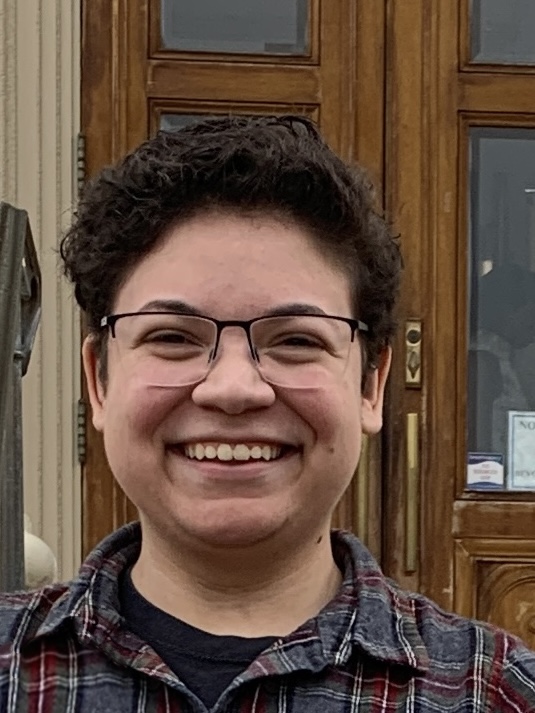 Carter Farinha joined the lab in summer of 2022 and received his BS in Biology from Penn State in Spring 2023. He is working on aggregating data on antimalarial therapeutic efficacy studies and molecular markers for drug resistance into a comprehensive database.
Carter Farinha joined the lab in summer of 2022 and received his BS in Biology from Penn State in Spring 2023. He is working on aggregating data on antimalarial therapeutic efficacy studies and molecular markers for drug resistance into a comprehensive database.
BFF
 Amy Wesolowski has been best friends with the OUCRU Modeling group since her visit to Ho Chi Minh City in the summer of 2014. Bringing her unique brand of New Jersey humor, brash can-do-ness, and epi data sabermetrics, Amy marched thirty thousand ILI data points into a dozen key graphs and released the potential of our community ILI network. Amy worked with all members of the group and broadened the methods we use on a daily basis (smoothing splines, forecasting, swimming). We will be welcoming Amy back for another visit in 2015 and hopefully many more.
Amy Wesolowski has been best friends with the OUCRU Modeling group since her visit to Ho Chi Minh City in the summer of 2014. Bringing her unique brand of New Jersey humor, brash can-do-ness, and epi data sabermetrics, Amy marched thirty thousand ILI data points into a dozen key graphs and released the potential of our community ILI network. Amy worked with all members of the group and broadened the methods we use on a daily basis (smoothing splines, forecasting, swimming). We will be welcoming Amy back for another visit in 2015 and hopefully many more. Marc “Dep Trai” Choisy received his PhD from the University of Montpellier, and after some postdoctoral work in the US, moved to Hanoi to work with the Vietnamese goverment and OUCRU as an IRD Fellow. Marc has worked with the OUCRU modeling group since 2012, mostly on influenza and ILI dynamics. Marc and Thai (see below) have helped us assemble a detailed time series of Vietnam’s national ILI and influenza data, which so far suggest that the dynamics of respiratory disease can be very complicated when winter is not around to impose a clean annual order on the dynamics.
Marc “Dep Trai” Choisy received his PhD from the University of Montpellier, and after some postdoctoral work in the US, moved to Hanoi to work with the Vietnamese goverment and OUCRU as an IRD Fellow. Marc has worked with the OUCRU modeling group since 2012, mostly on influenza and ILI dynamics. Marc and Thai (see below) have helped us assemble a detailed time series of Vietnam’s national ILI and influenza data, which so far suggest that the dynamics of respiratory disease can be very complicated when winter is not around to impose a clean annual order on the dynamics.Alumni
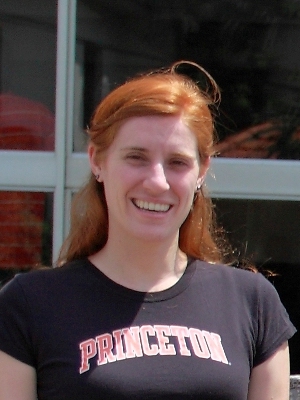 Amadea Britton. Masters student at Harvard School of Public Health, with Caroline Buckee and Maciej Boni. Amadea’s Masters thesis analyzed historical malaria trends in southern Vietnam, and the analysis was published in the American Journal of Tropical Medicine and Hygiene in 2015. Graduated 2012. Amadea went on to Stanford Medical School.
Amadea Britton. Masters student at Harvard School of Public Health, with Caroline Buckee and Maciej Boni. Amadea’s Masters thesis analyzed historical malaria trends in southern Vietnam, and the analysis was published in the American Journal of Tropical Medicine and Hygiene in 2015. Graduated 2012. Amadea went on to Stanford Medical School. Phạm Quang Thái. Open University PhD student with Peter Horby, Maciej Boni, and Marc Choisy. Graduated 2014. Thai’s PhD thesis focused on influenza burden and epidemiology in Vietnam, as well as the national dynamics of ILI. Thai is currently the Vice-Head of Epidemiology Department at National Institute of Hygiene and Epidemiology.
Phạm Quang Thái. Open University PhD student with Peter Horby, Maciej Boni, and Marc Choisy. Graduated 2014. Thai’s PhD thesis focused on influenza burden and epidemiology in Vietnam, as well as the national dynamics of ILI. Thai is currently the Vice-Head of Epidemiology Department at National Institute of Hygiene and Epidemiology.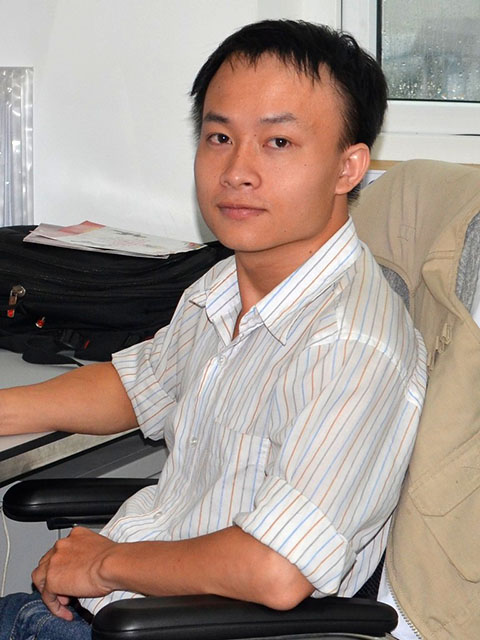 Nguyễn Thanh Hùng. Study Coordinator for influenza field and clinical studies from 2011 to 2014. Hùng was responsible for the initial growth and management of our influenza-like illness (ILI) community mHealth study. Hùng went on to work in the pharmaceutical industry in HCMC.
Nguyễn Thanh Hùng. Study Coordinator for influenza field and clinical studies from 2011 to 2014. Hùng was responsible for the initial growth and management of our influenza-like illness (ILI) community mHealth study. Hùng went on to work in the pharmaceutical industry in HCMC. Hạ Minh Lâm was a Research Assistant in our group from 2010-2012 and 2013-2015 (he did a Masters at U. Edinburgh in between). Lâm took the lead on the redesign of 3SEQ, analyzing ILI data from our mHealth study in Ho Chi Minh City, and various phylogenetic projects. In 2017, Lâm began his DPhil studies with Hannah Clapham, working on dengue seroepidemiology in Vietnam.
Hạ Minh Lâm was a Research Assistant in our group from 2010-2012 and 2013-2015 (he did a Masters at U. Edinburgh in between). Lâm took the lead on the redesign of 3SEQ, analyzing ILI data from our mHealth study in Ho Chi Minh City, and various phylogenetic projects. In 2017, Lâm began his DPhil studies with Hannah Clapham, working on dengue seroepidemiology in Vietnam. Trần Thị Như Thảo was a Research Assistant in our group from 2012 to 2015. Thảo led the laboratory portion of our large seroepidemiology study, which included processing serum samples via protein microarray and managing a large serum bank. In fall 2015, Thảo began a Master’s Program in Infection and Immunity at Erasmus University in Rotterdam, and then to a PhD at the University of Bern funded by a Marie Curie Fellowship.
Trần Thị Như Thảo was a Research Assistant in our group from 2012 to 2015. Thảo led the laboratory portion of our large seroepidemiology study, which included processing serum samples via protein microarray and managing a large serum bank. In fall 2015, Thảo began a Master’s Program in Infection and Immunity at Erasmus University in Rotterdam, and then to a PhD at the University of Bern funded by a Marie Curie Fellowship. Đào Nguyễn Vĩnh was an RA and PhD student in our group from 2010 to 2016. Vinh’s thesis focused on influenza modeling and inference using serological data. In 2016, Vinh started a postdoctoral position at OUCRU in the tuberculosis group, looking at the interaction between TB dynamics and HIV dynamics in Ho Chi Minh City.
Đào Nguyễn Vĩnh was an RA and PhD student in our group from 2010 to 2016. Vinh’s thesis focused on influenza modeling and inference using serological data. In 2016, Vinh started a postdoctoral position at OUCRU in the tuberculosis group, looking at the interaction between TB dynamics and HIV dynamics in Ho Chi Minh City.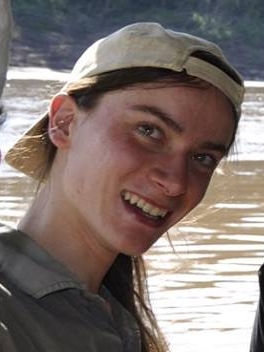 Benjamin Nguyen-Van-Yen was a post-graduate student at École Normale Supérieure with an MS in Mathematical Modeling at Université Pierre et Marie Curie (2015). Benjamin spent the first half of 2016 working at OUCRU in HCMC, building databases for poultry farm population data and developing mathematical models for the transmission of avian influenza on small poultry farms. Benjamin went on to do his PhD at Université Paris Descartes (Paris 5) in Functional Genetics of Infectious Diseases.
Benjamin Nguyen-Van-Yen was a post-graduate student at École Normale Supérieure with an MS in Mathematical Modeling at Université Pierre et Marie Curie (2015). Benjamin spent the first half of 2016 working at OUCRU in HCMC, building databases for poultry farm population data and developing mathematical models for the transmission of avian influenza on small poultry farms. Benjamin went on to do his PhD at Université Paris Descartes (Paris 5) in Functional Genetics of Infectious Diseases.
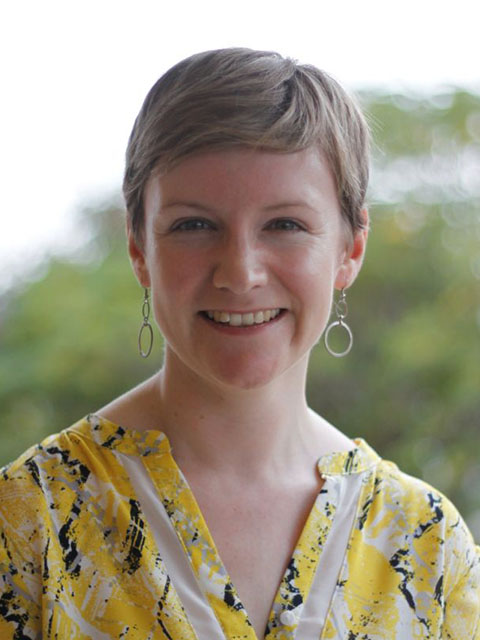 Stacy Todd was a Wellcome Trust Clinical PhD Fellow and SpR in Infectious Disease and General (Internal) Medicine at the Liverpool School of Tropical Medicine (LSTM). Stacy began her doctoral research in Ho Chi Minh City in 2012, setting up a large clinical study to analyze susceptibility differences among influenza antibody profiles and post-infection antibody dynamics. Stacy was awarded her PhD in 2016 and is now working as a clinician in Liverpool.
Stacy Todd was a Wellcome Trust Clinical PhD Fellow and SpR in Infectious Disease and General (Internal) Medicine at the Liverpool School of Tropical Medicine (LSTM). Stacy began her doctoral research in Ho Chi Minh City in 2012, setting up a large clinical study to analyze susceptibility differences among influenza antibody profiles and post-infection antibody dynamics. Stacy was awarded her PhD in 2016 and is now working as a clinician in Liverpool. Trần Thị Thanh Phương was a University of Oxford DPhil student working in health economics. Her thesis focused on health economic questions in tuberculosis-meningitis treatment and distribution of multiple first-line therapies (MFT) for malaria. Phuong was awarded her DPhil in spring 2017 and she is now a Lecturer at Ho Chi Minh City University of Economics.
Trần Thị Thanh Phương was a University of Oxford DPhil student working in health economics. Her thesis focused on health economic questions in tuberculosis-meningitis treatment and distribution of multiple first-line therapies (MFT) for malaria. Phuong was awarded her DPhil in spring 2017 and she is now a Lecturer at Ho Chi Minh City University of Economics. Hannah Clapham was a postdoc in the group in 2016 and 2017, focusing on seroepidemiological analyses for dengue, zika, and chikungunya virus. Hannah took over as head of the mathematical modeling group at the Oxford University Clinical Research Unit in Ho Chi Minh City, Vietnam. She is continuing her work in flavivirus seroepidemiology, which you can read about here. In 2019, Hannah started a faculty position at National University of Singapore.
Hannah Clapham was a postdoc in the group in 2016 and 2017, focusing on seroepidemiological analyses for dengue, zika, and chikungunya virus. Hannah took over as head of the mathematical modeling group at the Oxford University Clinical Research Unit in Ho Chi Minh City, Vietnam. She is continuing her work in flavivirus seroepidemiology, which you can read about here. In 2019, Hannah started a faculty position at National University of Singapore. Nguyễn Thị Lệ Thanh was the head study coordinator in OUCRU’s mathematical modeling group from 2014 to 2017. She managed the community ILI network that ran in Ho Chi Minh City, the 02FL serum bank that was set up in 2009, and the Ca Mau poultry field study that ran from 2015 to 2017. Thanh stayed on in OUCRU Ho Chi Minh City to work in Hannah Clapham’s research group, and then moved on to the OUCRU Innovations project which focuses on ICU patients and clinical decision-support systems.
Nguyễn Thị Lệ Thanh was the head study coordinator in OUCRU’s mathematical modeling group from 2014 to 2017. She managed the community ILI network that ran in Ho Chi Minh City, the 02FL serum bank that was set up in 2009, and the Ca Mau poultry field study that ran from 2015 to 2017. Thanh stayed on in OUCRU Ho Chi Minh City to work in Hannah Clapham’s research group, and then moved on to the OUCRU Innovations project which focuses on ICU patients and clinical decision-support systems. Nguyễn Hà Thảo Vy was a research assistant and Masters student in the group from 2013 to 2017. She received her MSc in Biotechnology from Ho Chi Minh City University of Science in 2016. Vy led the lab work in the group on influenza PCR diagnostics and influenza sequencing, and she was a lead member of the lab team that processed serum samples with microarray assays from 2012 to 2016. Vy is now working at OUCRU HCMC in Hannah Clapham’s research group.
Nguyễn Hà Thảo Vy was a research assistant and Masters student in the group from 2013 to 2017. She received her MSc in Biotechnology from Ho Chi Minh City University of Science in 2016. Vy led the lab work in the group on influenza PCR diagnostics and influenza sequencing, and she was a lead member of the lab team that processed serum samples with microarray assays from 2012 to 2016. Vy is now working at OUCRU HCMC in Hannah Clapham’s research group.
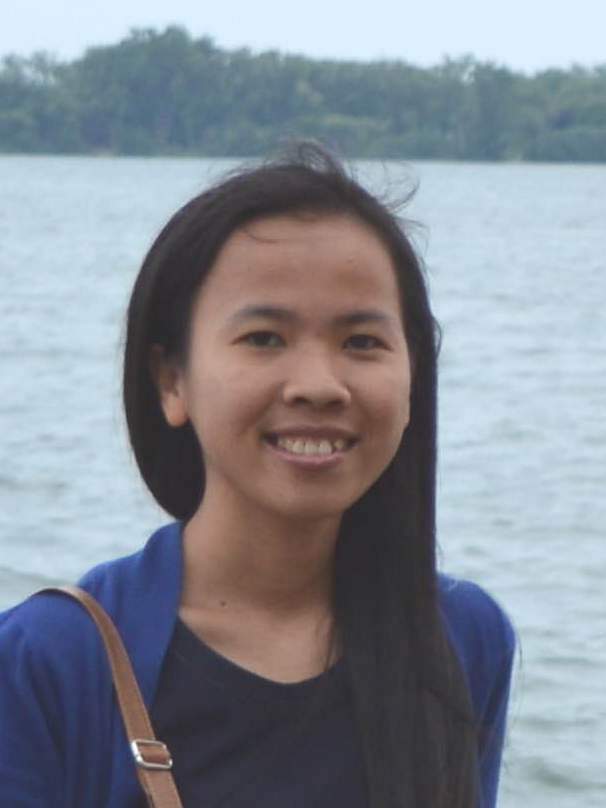 Huỳnh Thị Phương was a research assistant in the group from 2015 to 2017, working in the lab on molecular diagnostics and serological assays. In 2016, Phuong started an MSc program at Ho Chi Minh City University of Science. Phuong continued working at OUCRU HCMC in Hannah Clapham’s research group, and then went on to a Masters program in Epidemiology at the University of Antwerp.
Huỳnh Thị Phương was a research assistant in the group from 2015 to 2017, working in the lab on molecular diagnostics and serological assays. In 2016, Phuong started an MSc program at Ho Chi Minh City University of Science. Phuong continued working at OUCRU HCMC in Hannah Clapham’s research group, and then went on to a Masters program in Epidemiology at the University of Antwerp. Trần Minh Quân was an intern in the group from 2014 to 2016, processing microarray slide images for our large influenza seroepidemiology study. In 2016, Quan started working with Hannah Clapham, learning mathematical modeling techniques for various flaviviruses. Before leaving for a PhD at Notre Dame (Perkins Lab), Quan published a paper on the history of chikungunya virus transmission in southern Vietnam.
Trần Minh Quân was an intern in the group from 2014 to 2016, processing microarray slide images for our large influenza seroepidemiology study. In 2016, Quan started working with Hannah Clapham, learning mathematical modeling techniques for various flaviviruses. Before leaving for a PhD at Notre Dame (Perkins Lab), Quan published a paper on the history of chikungunya virus transmission in southern Vietnam. Đặng Duy Hoàng Giang received his Bachelors in Engineering in Electronic and Communications Engineering from The University of Nottingham in 2014. He joined OUCRU in March 2015 and began developing spatial methods for individual-based malaria simulations. Giang left OUCRU in summer 2017 to pursue a Masters Degree in Applied Mathematics at University College London.
Đặng Duy Hoàng Giang received his Bachelors in Engineering in Electronic and Communications Engineering from The University of Nottingham in 2014. He joined OUCRU in March 2015 and began developing spatial methods for individual-based malaria simulations. Giang left OUCRU in summer 2017 to pursue a Masters Degree in Applied Mathematics at University College London. Nguyễn Thị Duy Nhất was a University of Oxford DPhil student working in influenza seroepidemiology. Her thesis focused on analyzing stationary antibody titer distributions when no influenza vaccination is present, and inference of seroincidence from serological time series. Nhat passed her DPhil viva in November 2017, and began postdoctoral studies at Penn State in 2019.
Nguyễn Thị Duy Nhất was a University of Oxford DPhil student working in influenza seroepidemiology. Her thesis focused on analyzing stationary antibody titer distributions when no influenza vaccination is present, and inference of seroincidence from serological time series. Nhat passed her DPhil viva in November 2017, and began postdoctoral studies at Penn State in 2019. Sandra Goldlust was a summer intern in 2014, between her junior and senior years at Princeton where she was majoring in Ecology and Evolutionary Biology. Sandra was focused on analyzing national malaria data from Vietnam to determine what the major causes were of the 1980s rise in malaria cases and the subsequent fall in the 1990s. Sandra wrote her Princeton thesis on this topic which won her the thesis prize in her department. After graduation, Sandra moved to a research assistantship in Shweta Bansal’s group at Georgetown, and then to medical school at NYU.
Sandra Goldlust was a summer intern in 2014, between her junior and senior years at Princeton where she was majoring in Ecology and Evolutionary Biology. Sandra was focused on analyzing national malaria data from Vietnam to determine what the major causes were of the 1980s rise in malaria cases and the subsequent fall in the 1990s. Sandra wrote her Princeton thesis on this topic which won her the thesis prize in her department. After graduation, Sandra moved to a research assistantship in Shweta Bansal’s group at Georgetown, and then to medical school at NYU.
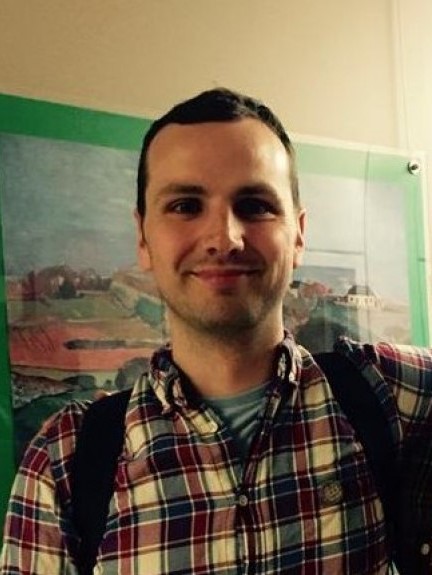 Matt Graham worked at OUCRU/Oxford as a postdoctoral scholar from 2016 to 2018 on influenza and influenza-like illness forecasting in Ho Chi Minh City. His work using the ILI data from the HCMC community study showed that the non-annual cycle was critical to accurate forecasting work.
Matt Graham worked at OUCRU/Oxford as a postdoctoral scholar from 2016 to 2018 on influenza and influenza-like illness forecasting in Ho Chi Minh City. His work using the ILI data from the HCMC community study showed that the non-annual cycle was critical to accurate forecasting work. Amber Davis worked with the Boni Lab in summer 2018, while she was an R&D Engineer at Penn State University’s Applied Research Labs. Amber worked on setting up a new transmission method for our individual-based malaria simulation.
Amber Davis worked with the Boni Lab in summer 2018, while she was an R&D Engineer at Penn State University’s Applied Research Labs. Amber worked on setting up a new transmission method for our individual-based malaria simulation.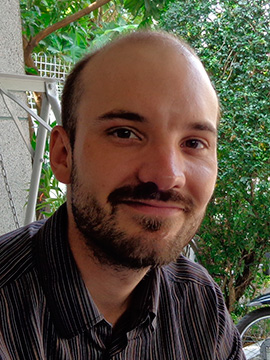 Alexis Delabouglise was a postdoc in our lab from February 2017 to August 2019. Alexis worked on both theory and data in the economic epidemiology of avian influenza outbreaks. His game theory work showed that vaccination and depopulation behavior can fix in animal disease systems as a means of infection control; depopulation is not allowed in human disease systems and vaccination behavior cannot fix through private market incentives alone. Alexis also analyzed flock-level data (N=1087 flocks) from >50 farms in Vietnam, and was able to show that farmers do indeed depopulate their farms early when outbreaks are occurring. Alexis is currently a researcher and health economist at CIRAD in Montpellier.
Alexis Delabouglise was a postdoc in our lab from February 2017 to August 2019. Alexis worked on both theory and data in the economic epidemiology of avian influenza outbreaks. His game theory work showed that vaccination and depopulation behavior can fix in animal disease systems as a means of infection control; depopulation is not allowed in human disease systems and vaccination behavior cannot fix through private market incentives alone. Alexis also analyzed flock-level data (N=1087 flocks) from >50 farms in Vietnam, and was able to show that farmers do indeed depopulate their farms early when outbreaks are occurring. Alexis is currently a researcher and health economist at CIRAD in Montpellier.
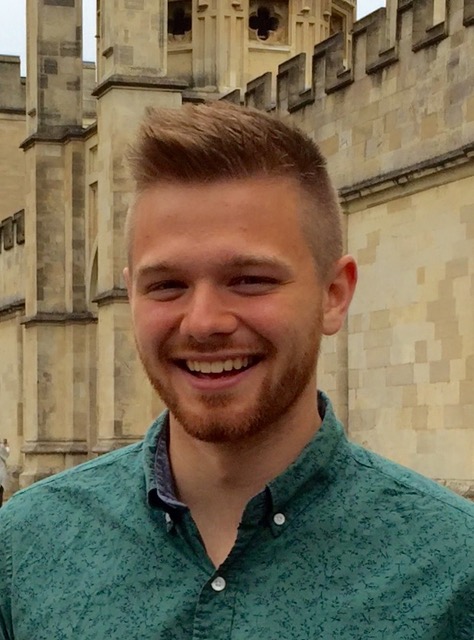 Asher Hollenbeak received his BS in Microbiology from the Pennsylvania State University (2019, Schreyer Honors College). His research focused on characterizing the spread of Plasmodium falciparum genotypes resistant to malaria rapid diagnostic tests using theoretical models, and a characterization of how diagnostic resistance interacts with drug resistance. Asher started a PhD program at Vanderbilt in Fall 2020.
Asher Hollenbeak received his BS in Microbiology from the Pennsylvania State University (2019, Schreyer Honors College). His research focused on characterizing the spread of Plasmodium falciparum genotypes resistant to malaria rapid diagnostic tests using theoretical models, and a characterization of how diagnostic resistance interacts with drug resistance. Asher started a PhD program at Vanderbilt in Fall 2020. Zhewen Li (Eric) received his BS in Computer Science in 2020 from the Pennsylvania State University. Eric joined the Boni Lab in Spring 2019, and focused on making computational advances in an individual-based epidemiological microsimulation to generate long-term forecasts for drug-resistance evolution in malaria. Using this model Eric evaluated what kinds of population-level treatment strategies generated the most/least risk in terms of generating novel multi-drug resistant genotypes. Eric started a Masters program at Cornell Tech in Health Technology in Fall 2020.
Zhewen Li (Eric) received his BS in Computer Science in 2020 from the Pennsylvania State University. Eric joined the Boni Lab in Spring 2019, and focused on making computational advances in an individual-based epidemiological microsimulation to generate long-term forecasts for drug-resistance evolution in malaria. Using this model Eric evaluated what kinds of population-level treatment strategies generated the most/least risk in terms of generating novel multi-drug resistant genotypes. Eric started a Masters program at Cornell Tech in Health Technology in Fall 2020.
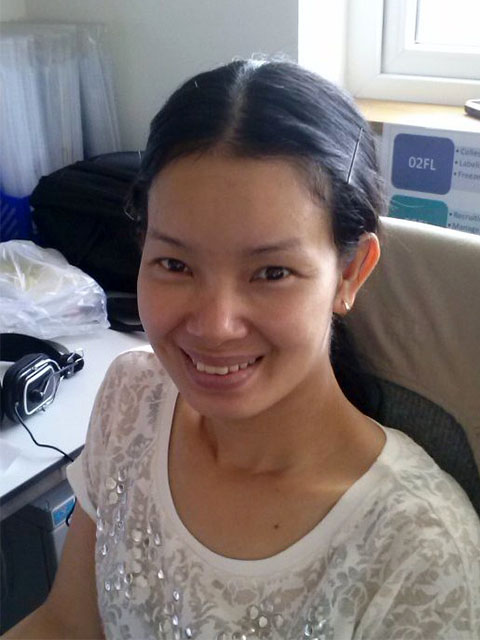 Nguyễn Thị Kim Cương graduated from Phuong Nam Technical College in 2010 with a college certificate in nursing and joined OUCRU’s Modeling Group in 2012 to set up the swabbing component of the community ILI study running in Ho Chi Chi Minh City. Kim Cuong led this study component from 2012 to 2019.
Nguyễn Thị Kim Cương graduated from Phuong Nam Technical College in 2010 with a college certificate in nursing and joined OUCRU’s Modeling Group in 2012 to set up the swabbing component of the community ILI study running in Ho Chi Chi Minh City. Kim Cuong led this study component from 2012 to 2019.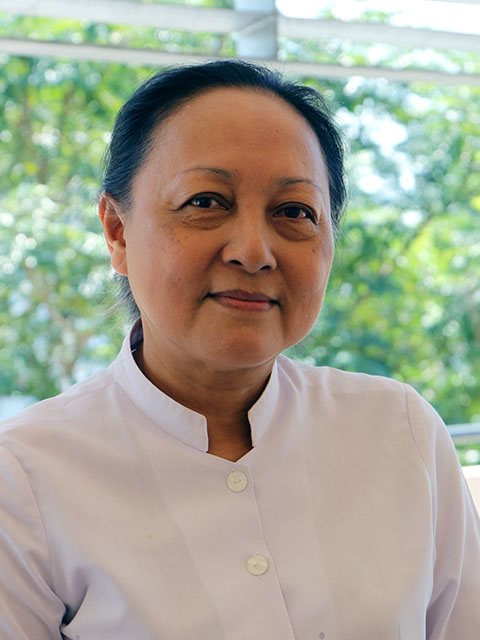 Trần Thị Ánh Tuyết worked at the Hospital for Tropical Diseases (HTD) for more than 30 years, in clinical care and research roles. She joined OUCRU in 2013 and helped Stacy Todd with patient enrollment and swabbing in Stacy’s clinical study on influenza immune profiles. Co Tuyết also worked on swabbing ILI patients alongside Kim Cuong.
Trần Thị Ánh Tuyết worked at the Hospital for Tropical Diseases (HTD) for more than 30 years, in clinical care and research roles. She joined OUCRU in 2013 and helped Stacy Todd with patient enrollment and swabbing in Stacy’s clinical study on influenza immune profiles. Co Tuyết also worked on swabbing ILI patients alongside Kim Cuong. Sarah Vo received her BS in Biology from Penn State (Shreyer Honors College) in Spring 2021. She joined the lab in Spring 2020 to work on her undergraduate thesis. Her research was focused on generating estimates for the efficacy of artemisinin combination therapies on different genotypes of Plasmodium falciparum.
Sarah Vo received her BS in Biology from Penn State (Shreyer Honors College) in Spring 2021. She joined the lab in Spring 2020 to work on her undergraduate thesis. Her research was focused on generating estimates for the efficacy of artemisinin combination therapies on different genotypes of Plasmodium falciparum.
 Haojun Li received his BS in Computer Science in 2021 from Pennsylvania State University. Haojun joined the lab in Spring 2020 and worked under the supervision of Dr. Robert Zupko on improving the functionality and user-friendliness of the spatial/ArcGIS database that underlies our malaria simulation.
Haojun Li received his BS in Computer Science in 2021 from Pennsylvania State University. Haojun joined the lab in Spring 2020 and worked under the supervision of Dr. Robert Zupko on improving the functionality and user-friendliness of the spatial/ArcGIS database that underlies our malaria simulation.
 Pakhi Agarwal received her Master of Science from Penn State in 2019 and worked in the Boni Lab in 2020 and 2021 developing unit tests for our individual-based malaria simulation.
Pakhi Agarwal received her Master of Science from Penn State in 2019 and worked in the Boni Lab in 2020 and 2021 developing unit tests for our individual-based malaria simulation.
 Deborah Grace received her BS in Biology in 2023 from Pennsylvania State University. Deborah worked in the Boni Lab in 2022 and 2023 as an undergraduate research assistant and provided invaluable help to Robert Zupko in assembling malaria data for Uganda — one of the first places where artemisinin resistance was detected in Africa.
Deborah Grace received her BS in Biology in 2023 from Pennsylvania State University. Deborah worked in the Boni Lab in 2022 and 2023 as an undergraduate research assistant and provided invaluable help to Robert Zupko in assembling malaria data for Uganda — one of the first places where artemisinin resistance was detected in Africa.
 Thư Tran received her BS in Computer Science from University of Science and Technology of Hanoi and her Masters in Software Engineering from the University of Bordeaux. Thu worked at the Oxford University Clinical Research Unit from 2014 to 2017, and in the Boni Lab at Penn State where she defended her PhD in May 2023. Thư developed a genotype-phenotype map for antimalarial drug-resistance loci in P. falciparum (here) that was used in a number of key international collaborations, including one on the effect that partner-drug resistance has on artemisinin resistance evolution and another on the population-level benefits of triple therapies. During the COVID-19 pandemic, Thư devoted substantial time to model development and led two major analyses on vaccination policy during the early 2021 vaccine rollout and the evolving population immunity landscape during this rollout. In summer 2023, Thư started a position as a data scientist at Axtria.
Thư Tran received her BS in Computer Science from University of Science and Technology of Hanoi and her Masters in Software Engineering from the University of Bordeaux. Thu worked at the Oxford University Clinical Research Unit from 2014 to 2017, and in the Boni Lab at Penn State where she defended her PhD in May 2023. Thư developed a genotype-phenotype map for antimalarial drug-resistance loci in P. falciparum (here) that was used in a number of key international collaborations, including one on the effect that partner-drug resistance has on artemisinin resistance evolution and another on the population-level benefits of triple therapies. During the COVID-19 pandemic, Thư devoted substantial time to model development and led two major analyses on vaccination policy during the early 2021 vaccine rollout and the evolving population immunity landscape during this rollout. In summer 2023, Thư started a position as a data scientist at Axtria.